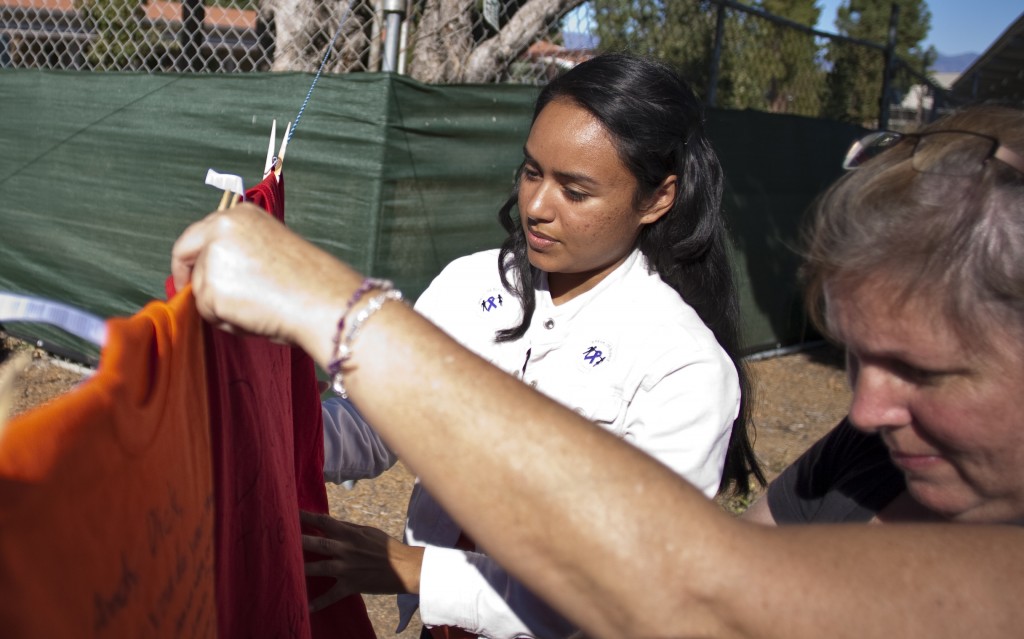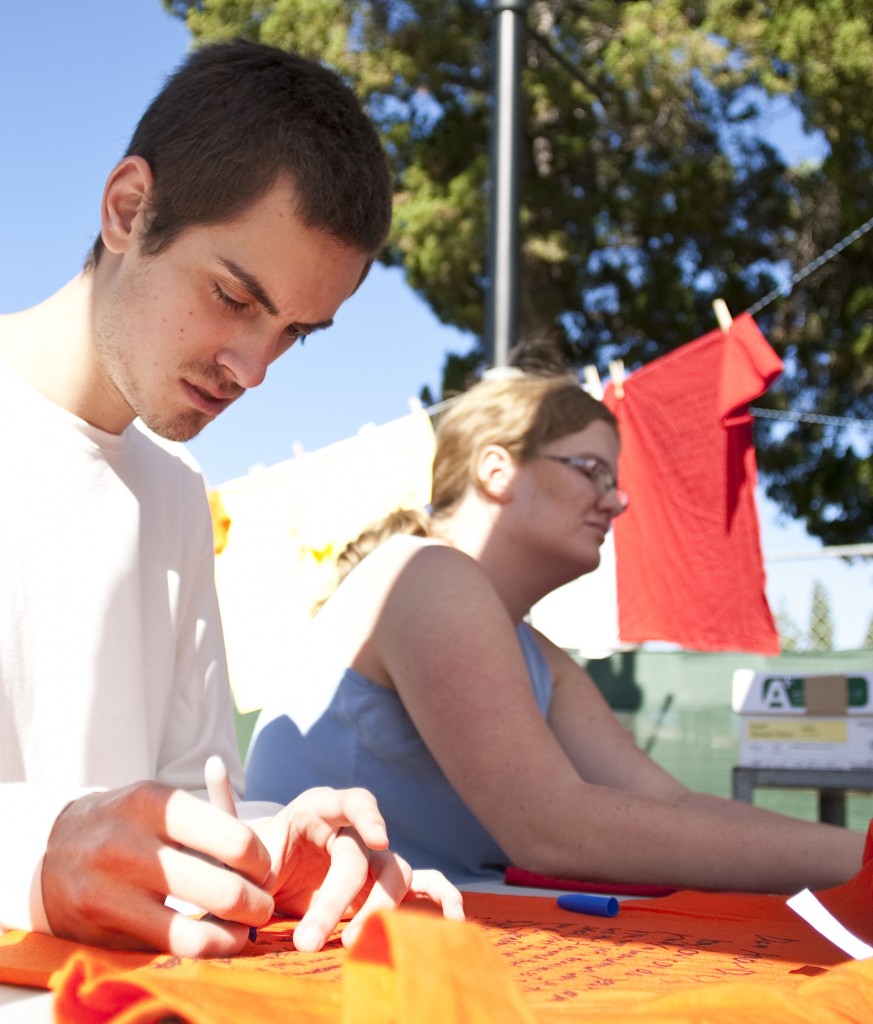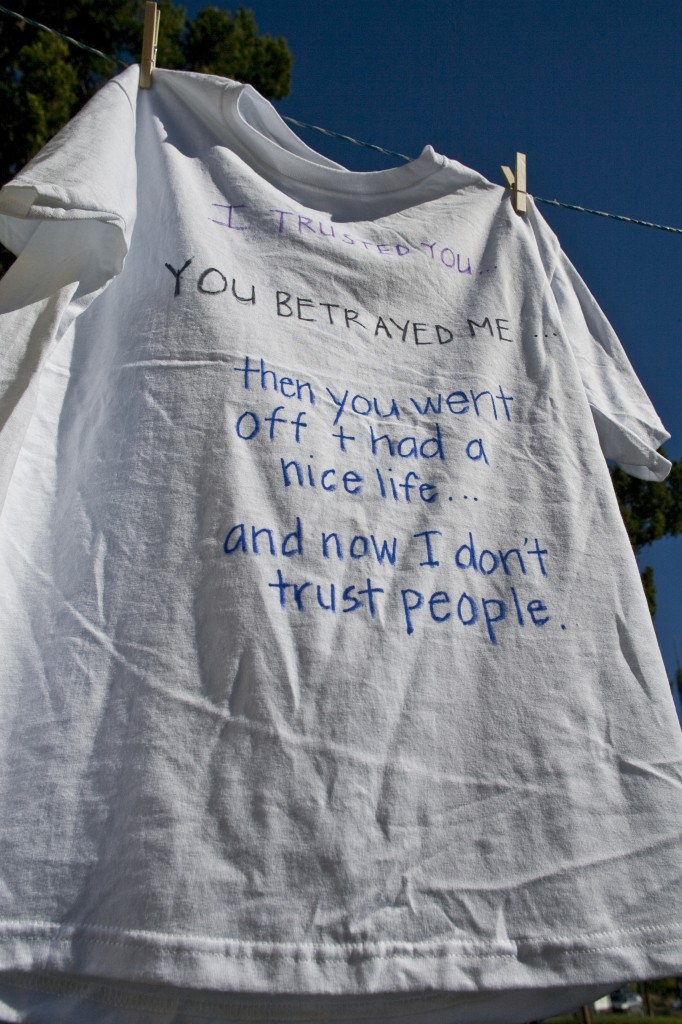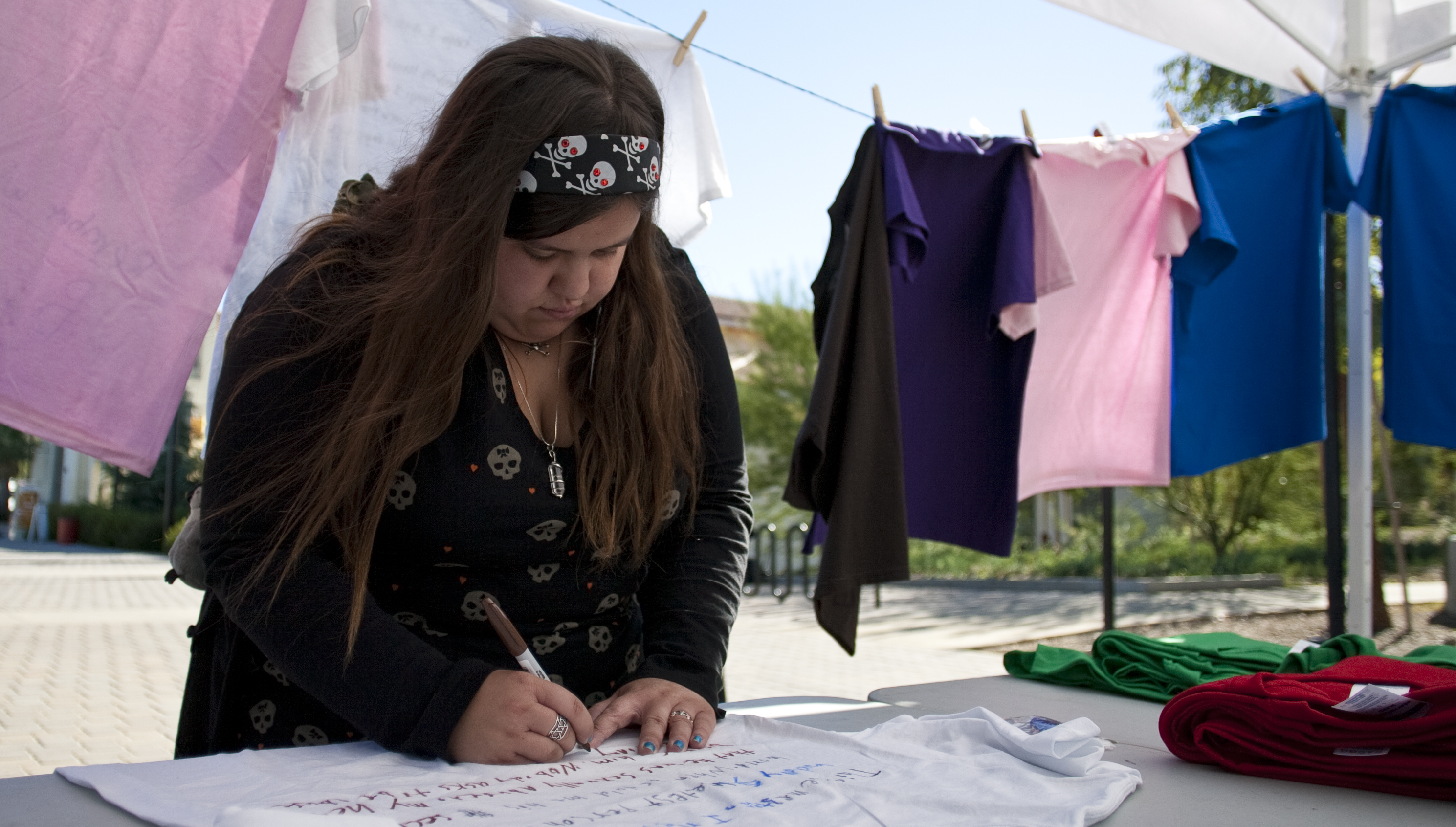
Strings of T-shirts dressed the Mall in flapping blues, purples, oranges, reds, greens and whites as they caught the wind and painted the southwest end with scrawled messages of pain, anger and hope.
With his back to the clotheslines, Nick Schafer sat straight and still with one hand, half-covered in a white sleeve, touching the curve of his forehead. Running it to the back of his neck or the top of his mouth, only his hand moved for minutes at a time as he stared at a blank, orange shirt.
Schafer painstakingly constructed a letter to a man, his sexual abuser, for the Clothesline Project, a nationwide domestic abuse awareness campaign hosted at Pierce College on Wednesday.
Behind him, each color signified a different story, a different kind of abuse.

Over the past four years, Holly Hagan, bookstore buyer for Pierce College and a survivor of domestic abuse, collected about 250 shirts from Pierce men and women affected by domestic abuse, and about half of them flicked and twisted in the wind from 9 a.m. to 3:30 p.m.
The Clothesline Project was created in Cape Cod, Mass., by a coalition of women’s groups to educate the passer-by, break the silence and bear witness to violence against women.
“It started 20 years ago with women hanging their laundry and talking over the fence,” Hagan said. “It’s very empowering. It’s a way for someone to express what happened to them in a safe way.”
Throughout the heat of the day, students walked along the clotheslines in contemplation, expressing support and often stopping to write a message on their own shirts.
“When you hear the word domestic violence, you don’t think maybe the person next to you went through it,” Melanie Centino, a health education intern at the Pierce College Student Health Center, said.
She pointed to an orange shirt written by a woman who was nearly killed by her boyfriend.
“It hits you when you hear that story,” Centino said.
Occasionally, survivors of abuse express their stories for the first time on the pressed, solid-color shirts, Hagan said.
Written by a woman who spoke of her abuse for the first time on Wednesday, a white T-shirt illuminated solid, block letters penned in blue, black and purple ink: “I trusted you. You betrayed me. Then you went off and had a nice life … and now I don’t trust people.”

Students battle painful memories while writing, struggling to give voice to their experiences and continue on the path toward healing.
“Just because you’re a dude doesn’t mean it hurts any less,” Schafer said. “It just sucks because I can’t talk about it.”
Halfway through his letter, Schafer filled the fabric with small, cramped script. His brow slightly creased, he pushed through a mental reel of his abuse to uncover words he’d saved for this man.
“Everyone just makes a joke about it. No one takes it seriously. But it’s not funny to me,” Schafer said. “I just wish it didn’t happen so I wouldn’t have to write this.”
One woman, who wished to remain nameless for her own personal security, found the strength to write her message with others in mind.
“I write this because I see a lot of girls on campus. I see their boyfriends yelling at them or grabbing their arms,” the woman said. “I know that if I’m not writing this, they’re not getting the message to leave.”
She has participated in the Clothesline Project every year at Pierce since 2007.
Though she successfully left her abuser six years ago, she still struggles to forget the way he made her feel.
“It seems like no matter how much school you get, how many classes you take, you still always feel unworthy. You can’t shake it. It’s always a fight to squash those feelings,” the woman said.
When asked if she felt brave sharing her message that morning, she said: “I don’t feel courageous.”
But her eyes were wet with tears as she drew from years of brutal, burning memories to construct the core of her story: “I had the courage to leave my abuser.”





